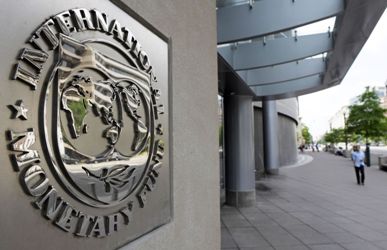IMF renews economic monitoring program for Sudan
March 28, 2014 (WASHINGTON) – The International Monetary Fund (IMF) announced on Thursday that its managing director Christine Lagarde had extended its Staff-Monitored Program (SMP) for Sudan for the rest of 2014.

In 2009, Sudan agreed to SMP to help it achieve a set of economic and financial policies and objectives which include sustaining economic growth, controlling inflation, reforming the banking sector and reducing budget deficit among others.
“The new SMP for 2014 provides a comprehensive framework for strengthening the policy mix to engineer an economic turnaround and restore macroeconomic stability while strengthening social safety nets and developing the reforms for sustainable economic growth,” the IMF said in a press release.
In its statement, the IMF expressed concern over the growing burden presented by Sudan’s external debts.
“Sudan’s external debt is high and largely in arrears, cutting off the country from access to most external financing sources. In particular, Sudan remains unable to access IMF resources because of its continued arrears to the fund,” the statement said.
“A strong track record of maintaining macroeconomic stability and implementing reforms, together with a comprehensive arrears clearance strategy supported by development partners, will be essential for resolving Sudan’s large debt overhang,” it adds.
Last year, the IMF said that Sudan’s debt will hit $44.7 billion in 2013, which amounts to 87.6% of its gross domestic product (GDP). It urged Sudan at the time to work with South Sudan on the issue of debt that existed under the pre-secession Sudan, which has been inherited by Khartoum.
“In light of Sudan’s large stock of overdue external debt obligations, the government should work closely with South Sudan, as part of the recently signed Comprehensive Agreement, on reaching out to creditors to elicit their support for comprehensive debt relief, given the approaching deadline of the “zero option” for debt apportionment”, the IMF said last year.
North and South Sudan agreed to work jointly on seeking debt relief from international creditors. If these efforts are unsuccessful the ex-foes will sit down again to decide on how to split the debt.
Sudan has been struggling with what was described as an economic shock following the loss of the oil-rich south in July 2011. Oil revenues constituted the majority of Sudan’s exports, national income and source of hard currency.
The Sudanese pound has lost more than half of its value pushing inflation rates to record levels given that the East African nation imports most of its food. In the black market, one US dollar was selling for 8.5 SDG compared to 8.2 at the end of February.
The official exchange rate is around 5.7 pounds to the dollar.
In its last report released in September 2013, the IMF said that Sudan’s non-oil real GDP growth is expected to remain below potential at about 3 percent over the medium term.
Fearing an economic collapse, as Sudanese officials termed it, Khartoum cut fuel subsidies last September which almost doubled prices of gasoline and diesel thus triggering some of the worst protests Sudan has seen in years.
The IMF approved of Khartoum’s decision saying that fuel subsidies in Sudan “disproportionately” benefit the rich but called for “a new package of corrective measures” including addressing fiscal imbalances and tax reforms.
(ST)
